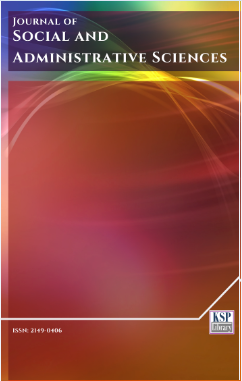Protection of indigenous minority voting rights in the Ethiopian electoral system: The case of Harari National Assembly
Abstract
Abstract. During the time of the election, indigenous minorities face enormous problems and difficulties. At times, their basic democratic rights are not always freely exercised. This paper explores the challenges encountered by one of Ethiopia’s indigenous minorities, the Hararis, during the sixth national election in Ethiopia. A descriptive, qualitative research method was used to investigate the nature of the problem and resolutions came up. Primary data (published legal documents, court cases and formal letters) were collected from various sources. The National Election Board of Ethiopia has inadvertently attempted to prevent the rights of indigenous minority Hararis (living in other parts of the country) from voting for candidates that form the Harari National Assembly. The basic reasons for the National Election Board to do so have no legal justification and are challenged by the federal and regional constitutions, particularly by articles explicitly addressing minorities and Hararis residing outside the Harari region to vote. The final decisions made by the federal cassation court were found to be correct, fair, acceptable, and in concurrence with the federal and regional constitutions. The study found out that the federal and regional constitutions of the country play a prominent role in protecting the rights of minorities to vote.
Keywords. Indigenous minorities; Harari National Assembly; Election; National Election Board of Ethiopia; voting rights.
JEL. F21, F68, O53, K23.
Keywords
References
Anderson, D. (2012). Federal Solutions to Ethnic Problems: Accommodating Diversity. Routledge. doi. 10.4324/9780203082027
Benedict, K. (1995). Indigenous peoples as an international legal concept, In H.R. Barnes (Ed.), Indigenous Peoples of Asia, (p.13–34), Ann Arbor: Association of Asian Studies.
Benedict, K. (1999). The applicability of the international legal concept of indigenous peoples in Asia. In J. Bauer & D. Bell (Eds.), The East Asian Challenge for Human Rights, (p.336–77), Cambridge: Cambridge University Press.
Elazar, D. (1987). Exploring Federalism, Tuscaloosa, AL: University of Alabama Press.
Francesco, C. (1978). Special Rapporteur, Study on the Rights of Persons Belonging to Ethnic, Religious and Linguistic Minorities, UN Sales No.E78 XIV-I (1978). Reprinted in 1991 by the United Nations Centre for Human Rights, UN Sales No. E-91, XIV 2, P5.
Kymlicka, W. (2005). Liberal multiculturalism: Western models, global trends, and Asian debates. In W.K. He (ed.), Multiculturalism in Asia (pp.22‒55). New York: Oxford University Press. doi. 10.1093/0199277621.001.0001
Lapidoth, R. (1997). Autonomy. Flexible Solutions to Ethnic Conflicts. Washington, DC: United States Institute of Peace Press.
Majeed, A., & Isawa, J. (2008). Building on and accommodating diversities. In R. Watts, & R. Chattopadhyay, (eds.), Unity in Diversity Learning From Each Other (Volume 1) Building on and Accommodating Diversities (pp.3-20). New Delhi: Forum of Federations.
Mcewen, N., & Lecours A. (2008). Voice or recognition? Comparing strategies for accommodating territorial minorities in multinational states, No.46 Commonwealth and Comparative Politics. doi. 10.1080/14662040802005310
Muluneh, K. (2021). The Praxis of Unity in Diversity at Sub–National Governments in Ethiopia: An Empirical Analysis of Benishangul‒Gumuz Regional State Practice. Lap Lambert Academic Publishing.
Minority Rights Group International. (1997). World Directory of Minorities, London: Minority Rights Group International.
Rehman, S.S. (2001). Indigenous Peoples and Ethnic Minorities of Pakistan Constitutional and Legal Perspectives. Curzon Richnlond Surrey. doi. 10.4324/9780203824344
Taylor, C. (1994). The Politics of Recognition, in A. Gutmann (ed.), Multiculturalism: Examining the Politics of Recognition, (p.25-73), Princeton: Princeton University Press.
Tierney, S. (2004). Constitutional Law and National Pluralism. Oxford & New York: Oxford University Press.
Van der Beken, C. (2010). Minority protection in Ethiopia: unraveling and improving ethnic federalism. Recht in Africa = Droit en Afrique = Law in Africa, 13(2), 243–273.
Van der Beken, C. (2015). Federalism, local government and minority protection in Ethiopia: Opportunities and challenges. Journal of African Law, 59, 150-177. doi. 10.1017/S0021855314000205
Watts, R. (2008). Comparing Federal Systems, 3rd edition. Montreal; Kingston; London; Ithaca: McGill‒Queen’s University Press.
Yonatan, T. (2008). Institutional Recognition and Accommodation of Ethnic Diversity: Federalism in South Africa and Ethiopia (PhD thesis). University of the Western Cape
Legal Documents
Declaration on the Rights of Indigenous Peoples (DRIP).
Declaration on the Rights of Persons Belonging to National or Ethnic, Religious and Linguistic Minorities (DRPBNERLM), 1992.
International Covenant on Civil and Political Rights (ICCPR), 1996.
International Covenant on Economic, Social and Cultural Rights (ICESCR), 1996.
International Labor Organization (ILO).
Proclamation No. 1162/2019, The Ethiopian Electoral, Political Parties Registration and Election’s Code of Conduct Proclamation.
The Constitution of the Federal Democratic Republic of Ethiopia Proclamation No. 1/1995, Federal Democratic Republic of Ethiopia (Addis Ababa, 1995).
The Constitution of the Harari Regional state, Harari Negarit Gazeta, 1th Year Special Issue Harari, September 1995.
The minutes of 102th ordinary assembly of the Ethiopian transitional government House of Representatives, March 15/1995.
The Revised Constitution of Harari Regional state, Harari, September 2004.
Universal Declaration of Human Rights (UDHR), 1948.
DOI: http://dx.doi.org/10.1453/jsas.v8i3.2236
Refbacks
- There are currently no refbacks.
....................................................................................................................................................................................................................................................................................................................................... Journal of Social and Administrative Sciences - J. Adm. Soc. Sci. - JSAS - www.kspjournals.org
ISSN: 2149-0406
Editor: editor-jsas@kspjournals.org Secretarial: secretarial@kspjournals.org Istanbul - Turkey.
Copyright © KSP Library




